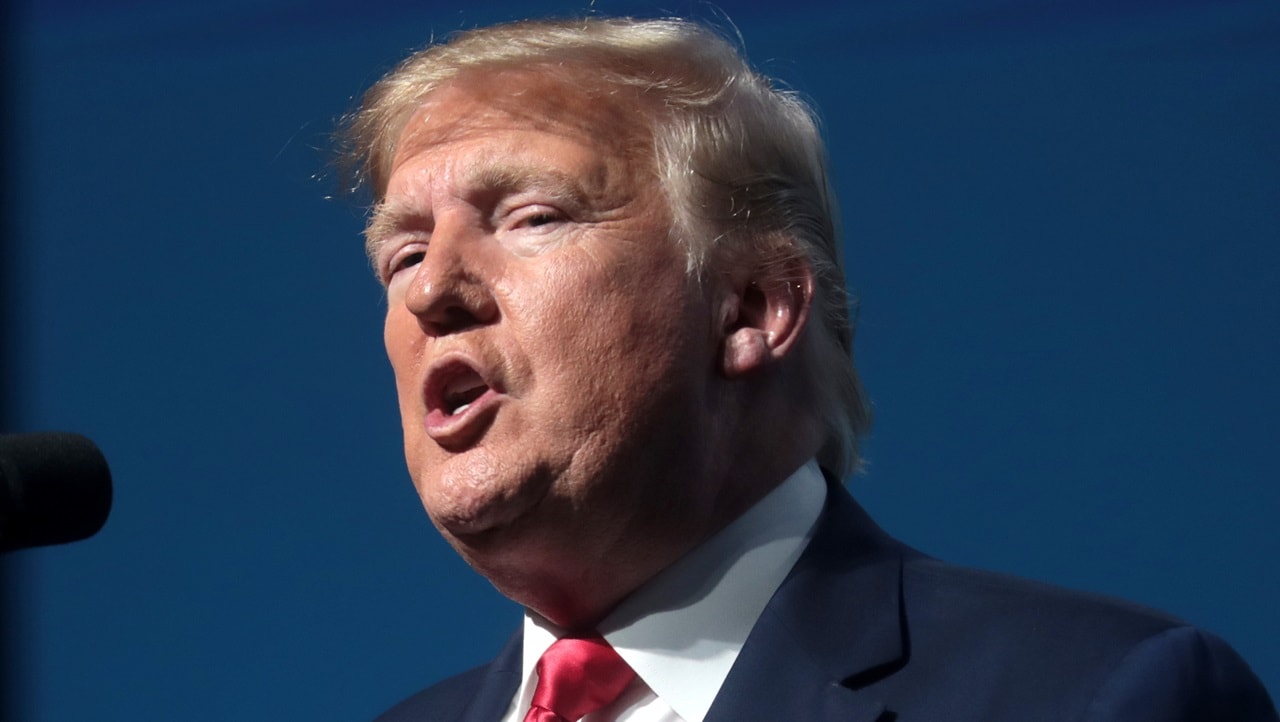Since January 26, US President Donald Trump has suggested multiple times a solution to the Israel-Hamas war: “just clean out” Gaza, moving the Palestinians to Egypt and Jordan. Then, on February 4, in a meeting with Israeli Prime Minister Benjamin Netanyahu at the White House, Trump proposed the US military invade and occupy Gaza to achieve this objective.
In a reversal of decades-long US policy against illegal forced displacement of Palestinians from Gaza and the West Bank, Trump’s proposition received a resounding and immediate rejection in Cairo, Amman, and the Arab world. That unsurprising response highlights a core truth lost on Trump administration officials – namely that Palestine cannot be sidestepped in the search for Middle East peace.
Trump is known for his bombastic language, often utilized as a public negotiating tactic to achieve his policy objectives. This situation is no different, with the new president doubling down on his comments by adding “I’d like Egypt to take people, and I’d like Jordan to take people. You’re talking about probably a million and a half people; we just clean out that whole thing.” He also claimed that such an effort “could be temporary or long term.”
Jordan rejected Trump’s plan, arguing its position was “firm and unwavering.” Similarly, Egypt argued such a decision “risks expanding the conflict in the region.” Both countries are home to Palestinian refugees, with Jordan home to roughly 2.4 million.
Meanwhile, Israeli officials have openly applauded Trump for his proposal. Israeli Finance Minister Bezalel Smotrich and the broader far-right ultranationalist movement in the country have worked to operationalize Gaza’s settlement and annexation. As such, Smotrich claimed that, “After years of statesmen trying to impose their imaginations on reality, the US president is finally acknowledging reality, Gaza is a hotbed of terrorism that creates suffering for both the residents of the State of Israel and the residents of Gaza themselves.”
That effort, and the broader conversation of the so-called “day after” in Gaza following the disastrous 16-month war between Israel and Hamas, ultimately fails to acknowledge reality. Hundreds of thousands of Palestinians are currently returning to the Strip’s ravaged north in a clear rejection of and resistance to any Israeli plans to illegally grab Gazan territory long designated for a Palestinian state.
Any effort to forcibly remove 1.5 million civilians from Gaza will constitute a major violation of international law, forcibly displacing and ethnically cleansing the illegally occupied territory of a UN observer state. Setting aside the matter of international law, most Palestinians will not willingly leave their homes – meaning violent force would be required. Furthermore, US interests are harmed by supporting population transfers, particularly via direct US military intervention, contradicting decades of US policy supporting a two-state solution.
Any US-backed effort to forcibly displace and ethnically cleanse even part of Gaza will foster widespread anti-American sentiment in the region and beyond. US soft power will be especially degraded in the Arab and Muslim world.
After witnessing US double standards between Ukraine and Gaza over the last 16 months, Washington will cause undue harm to itself with these communities and countries, fueling anti-American radicalization in the process. If US troops go to Gaza, they will face violence and some – maybe many – will die.
That negative impact will be felt most acutely in the Middle East, where Trump hopes to expand his Abraham Accords by achieving a flawed but landmark Israel-Saudi Arabia normalization agreement. Riyadh continues to make clear that such an agreement is impossible without a clear path to a Palestinian state – a stance driven by domestic considerations.
While Trump would like to have his cake and eat it too, he will ultimately have to choose between his full-throated support for Israel’s far-right settler movement or normalization deals that he believes will garner a Nobel Peace Prize.
That decision will have a major impact on critical efforts to right-size the US regional strategy and the resources it commits to achieving its broader foreign policy goals. Washington must commit to a decreased military presence in the region, something which can be paired with more diplomacy in the region.
Those interests include the free flow of energy products that promote global economic stability. Achieving that objective requires a degree of regional stability sustained through key regional power brokers, with some US diplomatic and economic tools also applied to induce cooperation and stability.
Those power brokers will struggle to justify cooperating with Washington after Gaza’s ethnic cleansing as it will roil their populaces and likely cause widespread destabilization – possibly including a regional conflict – as a result.
These considerations must drive the administration to understand that a deeper, more complex strategy is needed to truly resolve the Palestine-Israel conflict. Middle East peace can and should be achieved – Trump is not wrong for seeking a resolution. But that resolution will not be achieved until he recognizes that U.S. and Israeli interests do not always align—and this is one case in which confusing the two would lead to the US becoming further entangled in the Middle East.
About the Author
Alexander Langlois holds a Master of Arts degree in International Affairs from American University, where he specialized in global governance, politics, and security. He is a foreign policy analyst and writer, with publications in various outlets such as The Carnegie Endowment for International Peace’s Sada, Atlantic Council’s MENASource, Lowy Institute, Gulf International Forum, the New Arab, the Nation, Inkstick, and the National Interest. Alex focuses much of his writing on Syria, Lebanon, Palestine, Yemen, and the Gulf, as well as wider West Asian geopolitical currents. By advancing military restraint and U.S. soft power strategies, Alex hopes to contribute to the advancement of peace, human rights, and democracy in the region, providing informed and nuanced analysis and policy recommendations to U.S. foreign policy officials and the American public.

